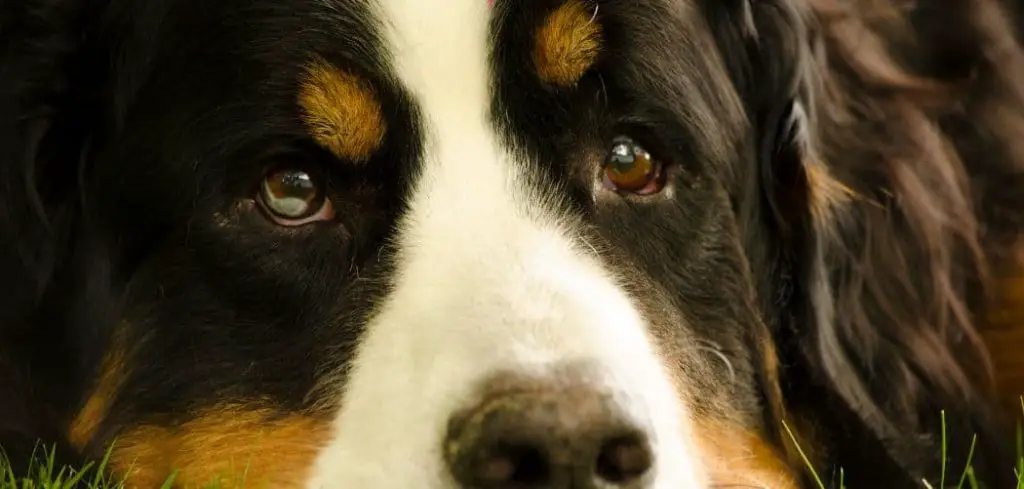Dogs experiencing extreme restlessness at night can be alarming for pet owners. This behavior often disrupts both the dog’s sleep and the household’s routine, signaling potential underlying issues.
We outline the common causes of extreme restlessness in dogs at night, what you can do, and when to seek veterinary help.
Table of Contents
Dog Extremely Restless at Night — Why It Happens
Extreme restlessness at night in dogs can stem from a variety of factors. It may be caused by medical conditions such as pain, urinary tract infections, or thyroid imbalances, as well as behavioral issues like separation anxiety or inadequate physical activity during the day.
Environmental stressors, including changes in routine or sleeping arrangements, can also trigger this behavior.

Extreme Restless in Dogs at Night: Common Causes
Pain or Discomfort
Pain from arthritis, injuries, or internal conditions can make it difficult for a dog to settle at night. Owners might notice pacing, whining, or difficulty lying down comfortably.
Persistent restlessness due to pain is serious because it affects quality of life and may indicate a worsening condition that requires veterinary attention.
Read more: Dog Has Too Much Energy at Night (Here’s how to manage it)
Urinary Tract Issues
Urinary tract infections or bladder problems can cause frequent urination and discomfort, leading dogs to wake up repeatedly and appear restless.
Signs may include straining to urinate, blood in the urine, or frequent trips outside. Ignoring these symptoms can lead to more serious infections or kidney complications.
Anxiety or Stress
Dogs suffering from separation anxiety or general stress may become highly active or agitated at night. They may pace, whine, or even vocalize excessively.
Anxiety-driven restlessness can negatively impact both the dog and the household, making early intervention important.
Insufficient Exercise
A dog that doesn’t receive enough physical or mental stimulation during the day may have excess energy at night.
This often manifests as restlessness, pacing, or destructive behavior. Regular daily activity is crucial to help manage nighttime energy levels.
Cognitive Dysfunction
Older dogs can develop canine cognitive dysfunction, leading to disorientation, confusion, and restlessness, especially during nighttime hours.
Signs include pacing, vocalization, and difficulty recognizing familiar people or surroundings. Early detection is vital to improve comfort and slow progression.
Gastrointestinal Discomfort
Digestive issues such as gas, bloating, or other gastrointestinal disturbances can make it hard for dogs to rest at night.
Owners may notice signs like repeated swallowing, licking, or pacing near food areas. Prompt veterinary evaluation ensures proper treatment and prevents worsening of symptoms.
What to Do If Your Dog Is Extremely Restless at Night
First, create a consistent bedtime routine to help signal to your dog that it is time to settle down. Dim lights, offer a quiet and comfortable sleeping space, and minimize loud noises.
Provide ample exercise and mental stimulation during the day to reduce excess nighttime energy. Long walks, play sessions, or puzzle toys can help burn off energy before bedtime.
Address potential environmental stressors by keeping your dog’s sleeping area calm and familiar. Avoid sudden changes in routine, furniture, or sleeping location.
Monitor dietary habits to ensure that late-night restlessness isn’t triggered by hunger, digestive discomfort, or water intake. Feeding smaller meals earlier in the evening may help.
Consider natural calming aids or consult your veterinarian about behavior modification strategies if anxiety appears to be the primary cause.
When to Call or Visit Your Vet
Seek veterinary attention immediately if restlessness is accompanied by signs of pain, difficulty breathing, vomiting, diarrhea, or frequent urination with blood.
Sudden or severe agitation, disorientation, or collapse also warrants urgent evaluation.
For chronic or worsening restlessness, a veterinary exam can identify underlying conditions like arthritis, cognitive dysfunction, or endocrine disorders.
Early diagnosis improves treatment outcomes and the overall well-being of your dog.
Read more: Dog Extremely Anxious at Night (Signs to watch for)
Key Takeaway
Extreme restlessness at night can signal a range of medical, behavioral, or environmental issues.
Observing patterns, providing adequate exercise, maintaining routines, and seeking veterinary guidance when needed are essential steps.
With careful attention and timely intervention, owners can help their dogs enjoy a more restful and comfortable night, ensuring better health and peace for the entire household.
